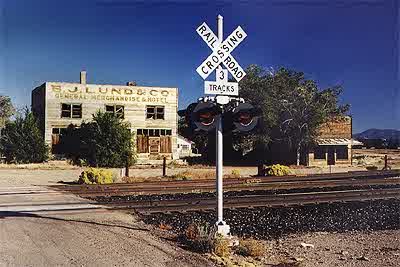 You want to know what telco/cable industry FUD (or b.s. in the vernacular) about net neutrality sounds like? Here it is uncut and uninterrupted, courtesy of Jason Wright of the Institute for Liberty (a name which could only be inspired by "Brave New World" or a post-9/11 bill in Congress):
You want to know what telco/cable industry FUD (or b.s. in the vernacular) about net neutrality sounds like? Here it is uncut and uninterrupted, courtesy of Jason Wright of the Institute for Liberty (a name which could only be inspired by "Brave New World" or a post-9/11 bill in Congress):A conservative-leaning colleague from a previous life emailed today and asked if I could break down the dicey net neutrality issue in the simplest terms possible. "Sure," I replied, "it stinks." This complex issue has been simplified in recent weeks to this simple question: Who do your trust?See how FUD works? Divert attention with labels. Celebrities vs. free market. Liberals vs. economists. Bureaucrats vs. consumers. Easy call, right? We know which ones feel right. When you see someone throwing that many labels at you, watch out ... and grab a shovel because a snowjob is coming your way.
Do you trust MoveOn.org and their celebrity network tech experts including Moby, Alyssa Milano and rockers REM? Of do you trust every free-market and limited government advocate including think-tanks and associations?
Do you trust pro-regulation liberals like Rep. Ed Markey (D-MA) or do you trust economists that have studied the issue ad nauseum and are united in their opposition to any efforts to impose government-defined net neutrality?
It's just not that complicated, fence sitters. `Net neutrality is unnecessary government tinkering in the private sector. It's an effort to wrap the web in a regulatory mess that gives Congress and the FCC the keys to its future. Excuse me, but I'd rather consumers determine what the next decade holds, not professional bureaucrats.
I've blogged about the pros and cons of net neutrality. And yes, I've mentioned celebrity supporters. But don't let their celebrity distract you. Think of them as Content Creaters. Just like the people who write blogs, post photos, build websites, write articles, post comments. The difference is that these high-profile Content Creators have a lot at stake, including money. Ironically, REM and Moby would likely make more money without net neutrality. Their "content" is valuable and has huge audiences. You can bet that telcos/cables will stream their music and concert video at top speed. Why? Because millions of people are willing to pay for it, and already have. They don't need net neutrality. I do. You do.
This blogger and most people will not pay the premium price to have their non-commercial, homemade content delivered at top speed. We will be coming to you on the slower road. And people's natural instinct is to avoid the slow road. This blog will be the small town that the information superhighway passes. You could get off and visit, but most likely you won't. You'll keep going until you reach the big rest stop with all the well-known fast food places and gas stations.
And let's be clear about one more thing: Net neutrality is how the Internet has worked since Day 1. All that innovative content--websites, blogs, P2P, community spaces, photo sharing, search, streaming videos, news feeds--was created under the umbrella of a net neutral Internet. It is not new. It is not a government imposed "regulatory mess." It is the status quo, and it's worked brilliantly.
The only reason people (including legislators) are talking about net neutrality is because telcos/cables want to change how the Internet works. They want to charge extra for bringing you rich multimedia content, like movies. They are after more money, which is fine. But their desire to squeeze more revenues out of their ownership of broadband networks will have a serious impact on how the Internet works.
And it will create a whole lot of ghost towns on the Internet. Maybe even this blog.







